#sethurathnamravi
Explore tagged Tumblr posts
Text
Sethurathnam Ravi on Merging Profit and Purpose in Investments
Sustainable investing has shifted from being a niche strategy to a driving force in reshaping the global financial landscape. Investors are no longer solely focused on profit but are also keen to align their financial objectives with broader social and environmental goals. This trend has gained significant momentum in India, with leading corporations like Tata Group and Infosys integrating their financial success with impactful initiatives.

According to Sethurathnam Ravi, also known as S Ravi BSE Chairman, the new mantra for Indian businesses is “profit with purpose.” This approach underscores the importance of using capital not only to generate returns but also to address pressing societal challenges.
Sethurathnam Ravi on Corporate Social Responsibility and ESG Integration
Sethurathnam Ravi emphasizes the significance of corporate social responsibility (CSR) in driving positive change. Companies like Tata Group are investing in areas such as education, healthcare, and rural development, while Infosys leads initiatives focused on digital literacy and environmental sustainability. Ravi notes that this holistic approach is essential for fostering inclusive growth while maintaining strong economic performance. By integrating environmental, social, and governance (ESG) factors into their business strategies, companies can simultaneously promote positive social impact and financial returns.
S Ravi BSE on the Rise of Sustainable Investing
The transformation of sustainable investing into a mainstream strategy reflects the growing awareness of ESG factors in investment decisions. Over the past decade, as S Ravi BSE Chairman highlights, the investment landscape has seen an increase in sustainable practices driven by concerns over climate change, inequality, and corporate governance. Investors are now more inclined to use their capital to drive social and environmental progress, recognizing the long-term risks associated with unsustainable business models.
Impact Investing: Sethurathnam Ravi’s Insights on Merging Profit with Purpose
One of the most promising developments within the sustainable investing space is impact investing. This strategy prioritizes the generation of positive social and environmental outcomes alongside financial gains. Sethurathnam Ravi explains that impact investors focus on projects addressing global challenges such as renewable energy, affordable housing, and accessible healthcare. Not only do these investments benefit society, but they also deliver attractive returns, making them an appealing option for investors seeking to align profit with purpose.
S Ravi BSE on Shareholder Activism: Driving Corporate Change
Shareholder activism has emerged as a powerful tool for responsible investors to influence corporate practices. By leveraging their ownership, investors can push for increased transparency, accountability, and alignment with ESG principles. Sethurathnam Ravi highlights the growing influence of shareholder resolutions, particularly those addressing climate change and diversity. These initiatives are pushing companies to reevaluate their practices and engage more deeply with their stakeholders, creating a more sustainable corporate environment.
Corporate Sustainability Reporting: The New Standard for Investors
Corporate sustainability reporting, once a voluntary practice, is now becoming a standard requirement for companies seeking investor trust. Sethurathnam Ravi points out that investors are increasingly demanding comprehensive ESG disclosures to assess long-term sustainability. With frameworks like the Task Force on Climate-related Financial Disclosures (TCFD) and the Sustainability Accounting Standards Board (SASB) gaining traction, companies are now expected to provide clear insights into their sustainability performance. This transparency helps investors make informed decisions based on long-term value creation.
Integrating ESG Criteria: Sethurathnam Ravi’s Holistic Investment Approach
Incorporating ESG criteria into investment decisions is essential for long-term value creation. S Ravi BSE Chairman advises that investors who consider environmental, social, and governance factors alongside traditional financial metrics can better assess a company’s overall performance. This comprehensive approach enables investors to identify strong ESG opportunities while avoiding businesses with heightened sustainability risks, ultimately leading to more resilient investment portfolios.
Building a Sustainable Future: Sethurathnam Ravi on Responsible Investing
As the trend toward sustainable investing continues to grow, integrating ESG factors into investment strategies is increasingly seen as vital for building a sustainable future. Sethurathnam Ravi underscores the potential of this trend to create a more equitable and environmentally responsible global economy. By aligning financial objectives with broader social and environmental goals, investors can drive positive change while achieving superior risk-adjusted returns over time.
Conclusion
The insights shared by Sethurathnam Ravi, or S Ravi BSE Chairman, highlight the growing importance of sustainable investing in today’s financial world. By merging profit with purpose, impact investing, and corporate responsibility, companies and investors alike are working towards building a more sustainable and prosperous future. As ESG considerations become an integral part of investment strategies, the potential for long-term positive change becomes more apparent, paving the way for a more equitable and environmentally-conscious global economy.
0 notes
Text
Sethurathnam Ravi Discusses Raising GST Evasion Threshold for Arrest to Rs 3 Crore
In a bid to streamline business operations and reduce harassment, the Centre is poised to raise the threshold for arrest and criminal prosecution in Goods and Services Tax (GST) evasion cases from Rs 2 crore to Rs 3 crore. Sethurathnam Ravi, former Chairman of the Bombay Stock Exchange (BSE), shared his insights on this proposed change during a discussion with Tarun Nangia and other industry experts.
Sethurathnam Ravi opened the discussion by highlighting that the industry has long called for such reforms to mitigate the fear of arrest and other punitive measures, and these concerns have been consistently communicated to the finance ministry. He acknowledged that while the proposed increase from Rs 2 crore to Rs 3 crore is modest, it reflects the government’s cautious approach.

"The government faces a dichotomy," Ravi explained. "If they raise the threshold too much, it could lead to issues with fraudulent tax invoices, which have been a significant problem. They are trying to balance supporting honest taxpayers while curbing fraudulent activities."
Sethurathnam Ravi noted that the government’s cautious stance is evident in the phased implementation of e-invoicing, which offers real-time access to invoices and helps curb the manipulation of fake credits. This step-by-step approach, he believes, indicates the government's intent to gradually reform the system.
"The government aims to decriminalize the process," Sethurathnam Ravi said. "However, they are proceeding slowly due to various regulatory and procedural challenges. I personally believe the threshold should eventually be raised to Rs 5 to 7 crore. Penalties can still be imposed on wrongdoers, but arresting and coercive actions can lead to misuse of power."
Sethurathnam Ravi emphasized that many businesses are concerned about receiving notices from various levels, which can disrupt operations. Increasing the threshold to Rs 5 to 7 crore, with appropriate checks and balances, would provide a more conducive environment for businesses to thrive without the constant fear of punitive actions.
In conclusion, while the proposed increase to Rs 3 crore is a positive step, Ravi and other experts believe that further adjustments are necessary to create a fairer and more efficient tax system.
#SethurathnamRavi#GSTReform#SethurathnamRaviInsights#TaxEvasionThreshold#SethurathnamRaviOpinion#BusinessConvenience#FinanceMinistryReforms
0 notes
Text
S Ravi BSE, Russia-Ukraine war Indian bank NPAs can rise
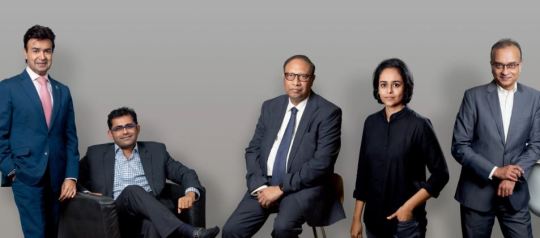
Banks will have to assess the sectoral exposure to evaluate the financial impact of the war, S Ravi BSE describes, especially on MSMEs which do not have the cushion to absorb the additional costs like large corporations.
Indian banks could witness a higher level of non-performing assets (NPAs) as a chain effect of various sectors being affected by the Russia-Ukraine crisis, especially the MSME sector which is still recovering from the brutal impact of the pandemic, S Ravi, Former Chairman of BSE and Founder & Managing Partner, Ravi Rajan & Co, told ETBFSI.
“The banks would have to carry through the sectoral sensitivity of these various sectors, to evaluate the financial impact of the war. Interest rates,however, are not likely to go up as banks would not like to take such steps until they get a complete overview of the impact,” he said.
The induced shortages, increased commodity prices and disruption in logistics in the region from a prolonged war will adversely impact the MISME sector, said Aruna Pannala, Partner, Deloitte India, while also highlighting that the advances to MSME have already declined as of September 2021 compared to March 2021, as per the RBI’s Financial Stability Report.
” The expected liquidity outflow due to the war will therefore impact the credit flow to the sector. The possibility of a wave of new variants of coronavirus also threatens the growth prospects. In this scenario, MSMEs are vulnerable, particularly those operating at less than full capacity. We expect that the NPAs can increase by 2-3 percentage points over the next 6 – 9 months, ” she said.
Interest rates and input costs:
Shivam Bajaj, Founder & CEO at Avener Capital is also of the opinion that the prolonged conflict between Russia and Ukraine would put pressure on interest rates and input costs and hit bottom-line of businesses.
Shortage of food, wheat particularly, increase in the price of oil will trigger inflation in various economies around the world. For the export-oriented MISME, there may be delays in delivery of orders and collections, while the import oriented MISMEs will have their supply chain disrupted, thereby negatively affecting cashflows.
“Large corporations have the cushion to absorb the additional costs without passing it to the customers for a longer period. However, MSMEs being price takers do not have the ability to dictate prices and may be compelled to absorb the additional costs which put an adverse strain on their profitability and balance sheet ” he said.
Uneven sectoral recovery:
Indian banks may face some headwinds from the crisis, which could lead to higher inflation and some stress for borrowers, however, the situation is still evolving and is being closely monitored, said Deepali Seth Chhabria, Analyst at’S&P Global Ratings.
‘There are some pockets of stress that we see in retail and the small and medium enterprises sectors given that the recovery so far has been uneven, but with a further pick up in the economy the residual stress should start abating,” she told Reuters.
Marginal impact on banks:
Krishnan Sitaraman, senior director and deputy chief ratings officer, CRISIL Ratings told ETBFSI last week that Indian banks’ direct exposure to Russia and Ukraine is limited and the direct impact from the conflict is likely to be marginal.
Banks will also get 10 days to complete the processing of payments already in the sustem to avoid near-term problems for businesses and trade.
There will be no immediate impact of the Russia-Ukraine crisis on Indian banks since according to him the exposure of the banks is not as much, and their strong balance sheets will be able to withstand the situation.
2 notes
·
View notes
Text
Chartered Accountant to The Chairman of BSE, Life of S Ravi Keeps Souring to Heights.
Sethurathnam Ravi (S Ravi BSE) founded Ravi Rajan & Co. Presently, Mr. Ravi holds the position of Non-Executive Chairman of Tourism Finance Corp. of India Ltd. and Director & Managing Partner at RRCA & Associates. Mr. Ravi is also Associate Member at Association of Certified Fraud Examiners, Member of The Institute of Chartered Accountants of India, Director & Managing Partner at Ravi Rajan & Co. and Member-MOU Department at India Department of Public Enterprises and on the board of 15 other companies. In his past career he held the position of Chairman for BSE Ltd. and Union Finance & Revenue Secretary at India Ministry of Finance. Mr. Ravi received a graduate degree from Rani.
Sethurathnam Ravi, famously known as S Ravi is a chartered accountant who is based in India. Additionally, he is also the managing partner as well as a promoter of Ravi Rajan & Co. Besides this, S Ravi is also known as the former chairman of BSE or Bombay Stock Exchange.
In terms of education, S Ravi has achieved both his bachelor’s and master’s degrees in the field of commerce at Durgavati University which is situated in Madhya Pradesh. Thus, he is a well-qualified man of knowledge with extreme experience in the financial and management fields.
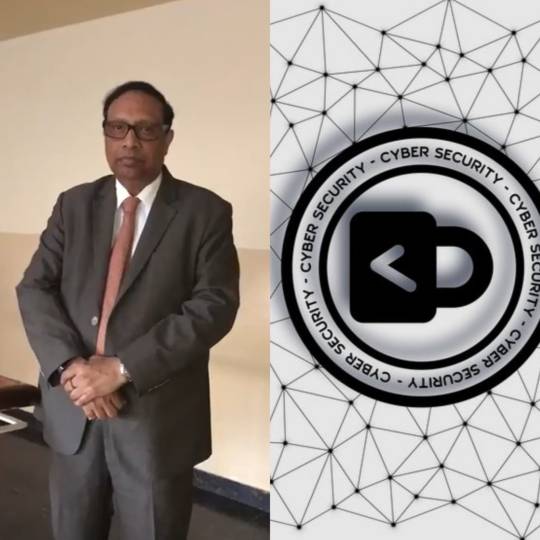
Achievements
Speaking of achievements, S Ravi BSE has served as an Independent Director of the Tourism Finance Corporation of India. By 2019, he was one of the Board Directors of SBI Payment Services Pvt. Ltd. Prior to joining BSE, he served on the boards of several companies, including SBI-SG Global Securities, UTI Company Limited, SMERA Ratings, BOI Merchant Bankers and STCI Finance. He is also a member of SEBI's takeover panel with ICAI or the Institute of Chartered Accountants of India.
S Ravi was the former BSE chairman from November 2017 to February 2019 affirmatively. He was appointed chairman of the BSE based on his knowledge and experience in gaining several positions on various boards of banks, along with asset management companies and financial institutions in the respective financial sectors. He is currently the Founder and Managing Partner of Ravi Rajan & Company, a consultancy and accountancy firm based in Delhi, India.
This BSE Chairman proudly holds his DISA or Diploma in Information Systems Audit. In addition, he is a competent and respected member of the CFE or the Association of Certified Fraud Examiners, along with a registered bankruptcy resolution professional. Similarly, as a BSE Chairman, he has a role to play in companies related to financial and asset management in the financial sector. Therefore, during his tenure as BSE Chairman, S Ravi did his best for the overall progress.
S Ravi's tenure spans over three decades, with extensive experience in banking, finance, management, financial consulting, appraisal, mergers, acquisitions, auditing and rehabilitation of correspondent companies and intermediate banks. And the reorganization of companies that pursue diversionary strategies.
Thus, S Ravi has often served as the Speaker of the Correspondence Regular Bodies RBI, SEBI and ICAI from time to time. Mr. Ravi firmly believes that women should be given the same rights as men and should be helped to resolve issues related to this issue. In addition, he is passionate about other burning topics such as sports, education, and global climate change.
Former BSE Chairman Sethurathnam Ravi strongly believes that all potential investors should be vigilant in the face of any impending crisis. Care must be taken when making an informed decision. In addition, the BSE Chairman emphasized on the issue that he has a firm vision to get BSE a 22-hour trading format. Historically, it has been observed that some investors somehow overreact to positive developments.
2 notes
·
View notes
Text
Startup Needs to take Leverage from Themselves Says S Ravi Bse
Mr. Sethurathnam Ravi (S Ravi Bse) is the former Chairman of Bombay Stock Exchange Limited (BSE) and Founder and Managing Partner of Chartered Accountants’ firm Ravi Rajan & Co., an advisory and accountancy firm, headquartered in New Delhi, India. . S Ravi on encouraging Emerging & Small Businesses and how they can leverage themselves rightly in the current environment.
Sethurathnam Ravi, a chartered accountant by profession, was the former chairman of BSE. He had been and is still continuing to be in board of many prestigious institutions. He shed his light in the current economic environment about his thoughts and how can a young entrepreneur establish his footsteps.
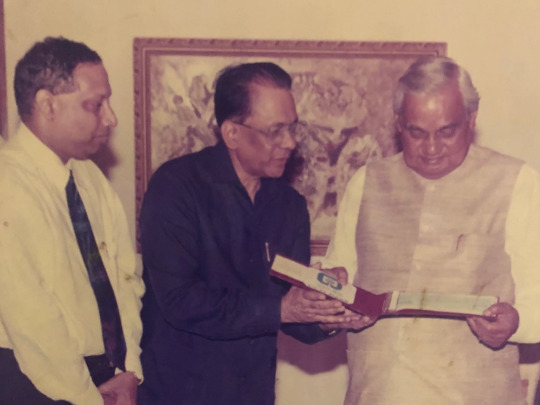
According to S Ravi, be it a startup or an enterprise of the future, how can they leverage themselves rightly in the current environment where everyone is predicting a super growth for India over the next 5 to 10 years. what are the regulatory issues they need to deal with, how can to navigate them, how to look after compliance because compliance is taking up their time money and effort and mind space, and most importantly the two issues that one can throw light on placing capital is that you know it’s raining IPOs both in the primary and secondary markets.
S Ravi, the former BSE chairman feels that money is abundantly available and second, is the fact that becoming the technology play, you need to be a technology company whatever business you’re.
Mr. Ravi, with the background experience in advising entrepreneurs companies and even part of the policy Making in the country would like to make a quick remarks on background of why the next few years are the best years for emerging companies grow and leveraged business environment that exists in India.
The first and foremost factor that is there is the transformation that is from traditional business to the non traditional business or to the new age business, says the Ex chairman of BSE. So, this transformation has been happening for the last ten years but it has accelerated over the last five to seven years. And one has seen lot of growth of fintech companies, new banks, seen lot of service providers, there are also a lot of critics type of company companies, and the companies which have that successes behind like paytm. But there should be new companies which are very robust and are coming up in all fields, let it be financial services, manufacturing, robotics or artificially intelligence. So what worries everybody in this space of the emerging companies and startup is compliance. For them, the cost of compliance can come down drastically if artificial intelligence and uniform platforms are created for them.
So that is why, S Ravi Bse recommends both the technology with the small emerging companies whether it be any manufacturing, aerospace etc. They can take anything so it has red deed and the cost of compliance will be automated and that is what I think is going to be the next level that the country going to witness. The growth is going to be there because of this and technology has played a very predominant part in it. Manufacturing company with core strength that has to coincide with technology companies to have a robust future says the former BSE chairman.
2 notes
·
View notes
Text
S Ravi, Former BSE Chairman-“Pattern Of Investment In International Mutual Fund Is Different From That Of Investments In Domestic Mutual Funds”
Sethurathnam Ravi, popularly known as S Ravi is the former chairman of Bombay Stock Exchange Limited (BSE). Currently he is the Founder and Managing Partner of Ravi Rajan & Co., an advisory and accountancy firm, headquartered in New Delhi, India. He is also an Associate Member of Association of Certified Fraud Examiners (CFE), USA, and also a registered Insolvency Resolution Professional. Sethurathnam Ravi in his latest article explains the challenges faced when investing in overseas mutual funds.
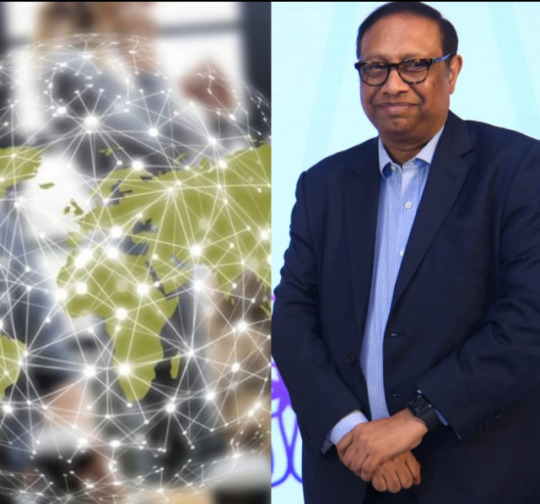
According to the Sethurathnam Ravi BSE ,the investment can be made in Indian Rupees and redemption is in Indian rupees. Investing in overseas Mutual Fund which is non-domestic has its own challenges in terms of methodology of payment, foreign exchange fluctuation and taxation, he explains. “The most preferred investment vehicle is through domestic fund houses as data and performance is readily available. Investors who have strong domestic presence the most efficient mechanism is to invest through domestic fund houses who in turn invest through various schemes in foreign stocks”, S Ravi said.
Sethurathnam Ravi also explains about the pattern of investment in overseas mutual funds. As per his affirmation the pattern of investment in international mutual fund is different from that of investments in domestic mutual funds. There are many things that need to be taken care of while investing in international mutual funds. S Ravi also explains about the term of investments that are suitable for investing in overseas mutual funds unlike domestic funds.
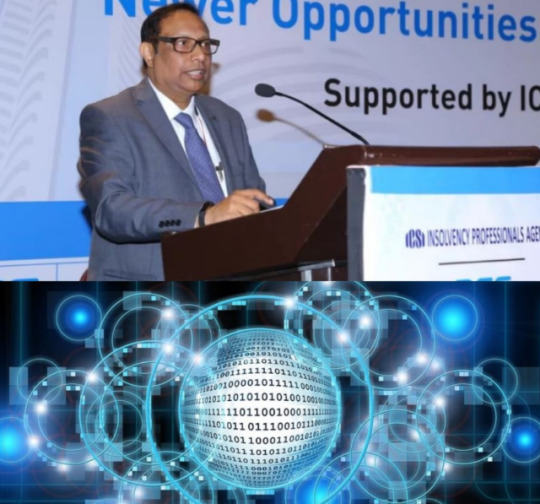
“An aspect which needs to be factored in this is that it is always better to invest medium or long-term perspective as one foreign stock give a good return over a period of time. Short-term investment in international mutual funds have witnessed volatility and thus should be avoided. Non-resident Indians have the liberty of investment from the country of residency. International mutual funds have delivered return of 27% in the last year. The three-year return is around 12% and the five-year return is approximately 13%”, Mr. Ravi, Former BSE Chairman affirms.
Investors still have the option to choose country specific investment through domestic fund house. There are specific schemes for investments predominantly in the US based stocks. Today the investor is equipped with data wherein fund performance is available along with NAV and returns, Sethurathnam Ravi concluded.
Also Watch:
youtube
#SethurathnamRavi#SethurathnamRaviBSE#SRaviBSE#SRavi#SRaviBSEFmrChairman#SRaviBSEChairman#SethurathnamRaviFmrBSEChairman#Youtube
1 note
·
View note
Text
S Ravi, Former BSE Chairman Advices The Stock Market Investors“New Investors Should Be Patient During Tough Times”
At a time when the Covid-19 pandemic and consequent lockdowns affected the economy, the stock market was one of the very few areas where the wheels were still turning. This attracted many new investors, and a record number of new Demat accounts were opened. During then pandemic, the Indian stock market witnessed lakhs of new investors form the Tier-2 and Tier-3 cities. However, this enthusiasm seems to have waned as returns from the market have flattened in recent months. From a high of 20 lakh new investors in October 2021, it has dropped to 13 lakhs in April 2022.
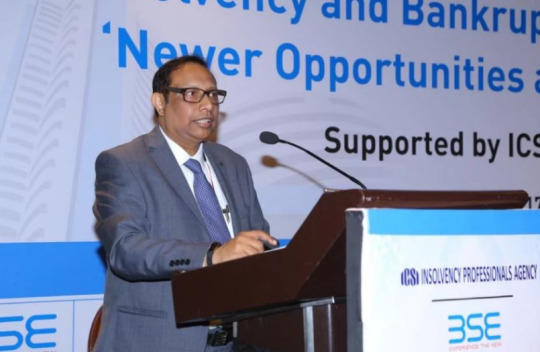
According to the former BSE Chairman Sethurathnam Ravi, foreign portfolio investments or FPIs became net sellers for eight out of 12 months in 2021–22 with a net outflow of Rs. 1.3 lakh crore, against a net inflow of Rs. 2.8 lakh crore in the previous year. Mutual funds, on the other hand, made heavy investments worth Rs. 1.7 lakh crore in the Indian equity market in 2021–22, according to the Reserve Bank of India.
There was a massive rise in the number of new Demat accounts. A total of 50 lakh Demat accounts were opened in 2019–20 and 1.42 crore in 2020–21. This shot up to 3.46 crore new Demat accounts in the year 2021–22. This means that on average, 28.8 lakh Demat accounts were opened every month during 2021–22, which was higher than 11.8 lakh accounts per month in the previous year and 4.2 lakh Demat accounts per month in 2019–20.
Due to this, the Indian stock market future remained dark with the pandemic looming over us. The global supply chain was crippled. Yet, S Ravi acknowledges that India’s stock market was one of the few areas that remained more stable than other markets. Finance Minister Nirmala Sitharaman said that retail investors seemed to act as shock absorbers even when foreign portfolio investors went away.
Experts including S Ravi BSE Chairman suggests that ups and downs in the stock market are a usual phenomenon and that new investors should be patient during tough times. For many new investors, the market trend during the 2008 American subprime mortgage crisis is too old to be considered. He said to India Today the other day that, “If the retail investors have used prudence and have invested in good stocks with strong fundamentals, they should not worry”. As a word of caution, Ravi added that retail investors should diversify their portfolios and should not take loans to invest in equity.
#SethurathnamRavi#SethurathnamRaviBSE#SRaviBSE#SRavi#SRaviBSEFmrChairman#SRaviBSEChairman#SethurathnamRaviFmrBSEChairman
0 notes
Text
Sethurathnam Ravi, Former BSE Chairman Advices Retail Investors To Diversify Their Portfolios
At a time when the Covid-19 pandemic and consequent lockdowns affected the economy, the stock market was one of the very few areas where the wheels were still turning. This attracted many new investors, and a record number of new Demat accounts were opened. During then pandemic, the Indian stock market witnessed lakhs of new investors form the Tier-2 and Tier-3 cities. However, this enthusiasm seems to have waned as returns from the market have flattened in recent months. From a high of 20 lakh new investors in October 2021, it has dropped to 13 lakhs in April 2022.
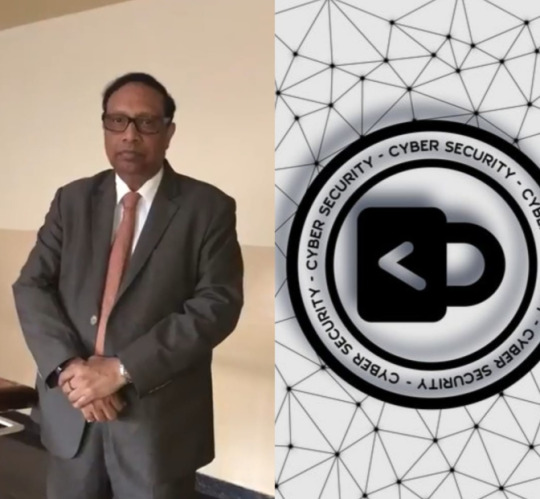
According to the former BSE Chairman Sethurathnam Ravi, foreign portfolio investments or FPIs became net sellers for eight out of 12 months in 2021–22 with a net outflow of Rs. 1.3 lakh crore, against a net inflow of Rs. 2.8 lakh crore in the previous year. Mutual funds, on the other hand, made heavy investments worth Rs. 1.7 lakh crore in the Indian equity market in 2021–22, according to the Reserve Bank of India.
There was a massive rise in the number of new Demat accounts. A total of 50 lakh Demat accounts were opened in 2019–20 and 1.42 crore in 2020–21. This shot up to 3.46 crore new Demat accounts in the year 2021–22. This means that on average, 28.8 lakh Demat accounts were opened every month during 2021–22, which was higher than 11.8 lakh accounts per month in the previous year and 4.2 lakh Demat accounts per month in 2019–20.
Due to this, the Indian stock market future remained dark with the pandemic looming over us. The global supply chain was crippled. Yet, S Ravi acknowledges that India’s stock market was one of the few areas that remained more stable than other markets. Finance Minister Nirmala Sitharaman said that retail investors seemed to act as shock absorbers even when foreign portfolio investors went away.
Experts including S Ravi BSE Chairman suggests that ups and downs in the stock market are a usual phenomenon and that new investors should be patient during tough times. For many new investors, the market trend during the 2008 American subprime mortgage crisis is too old to be considered. He said to India Today the other day that, “If the retail investors have used prudence and have invested in good stocks with strong fundamentals, they should not worry”. As a word of caution, Ravi added that retail investors should diversify their portfolios and should not take loans to invest in equity.
#SethurathnamRavi#SethurathnamRaviBSE#SRaviBSE#SRavi#SRaviBSEFmrChairman#SRaviBSEChairman#SethurathnamRaviFmrBSEChairman
0 notes
Text
Sethurathnam Ravi BSE Fmr Chairman, a Platform should be created where data sharing can happen, an open-source data platform
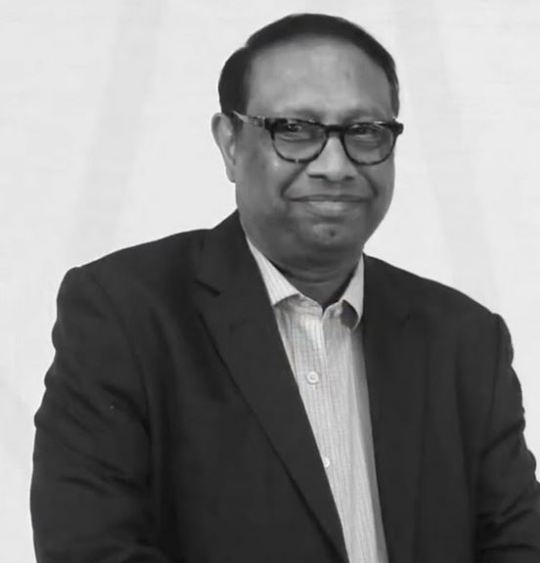
Sethurathnam Ravi BSE(S Ravi) is the former Chairman of Bombay Stock Exchange Limited (BSE) and Founder and Managing Partner of Chartered Accountants’ firm Ravi Rajan & Co., an advisory and accountancy firm, headquartered in New Delhi, India. S Ravi is a Post Graduate in Commerce and holds a diploma in Information System Audit (DISA). Mr. Ravi gives his suggestions on how to make GST friendly, for most of the people to abide by the tax paying mechanisms.
Sethurathnam Ravi BSE (S Ravi) is the former Chairman of Bombay Stock Exchange Limited (BSE) and Founder and Managing Partner of Chartered Accountants’ firm Ravi Rajan & Co., an advisory and accountancy firm, headquartered in New Delhi, India. S Ravi is a Post Graduate in Commerce and holds a diploma in Information System Audit (DISA). He is an Associate Member of Association of Certified Fraud Examiners (CFE), USA and is also registered as an Insolvency Resolution Professional.
Sethurathnam Ravi BSE on his latest talk on 5 years of GST with Tarun Nangia, presents his views on the journey of GST in India since its introduction 5 years ago. According to him, the Goods and Services Tax has been a major reform across India and so far, it has been a successful journey. He also makes four suggestions on how to make GST friendly, for most of the people to abide by the tax paying mechanisms.
“First of all, on the platform side, what happens is one person makes a wrong entry and there needs to be a corrective step which takes time. So for that, there should be empowerment which will happen slowly at the assessing person’s level, through the online system where we can produce documents to make the correction. That is one thing which will go a long way in sort of practically helping the cause because the rectification itself is a process”, Mr. Ravi explains.
The second point he details is that, when looking at the compensation sess, we can find that it is something to be done with. He also says that it was of course addressed by the last GST council. “But I think it has to be done with, because compensation sess is one thing that we do away as there are no freebies as far as this is concerned” Mr. Ravi said.
“The third thing that I would strongly feel is for the smaller SME and MSME segment”, he says. According to Sethurathnam Ravi BSE, a platform should be created where data sharing can happen, an open-source data platform between the banks, the SMEs, the MSMEs and the GST collection. So that in a harmonious manner, the bankers can review the collection, the credit record, turnover record, services record etc. “So, I think that is very important from the long-term perspective”, Mr. Ravi added. The fourth suggestion he made to make the tax mechanisms easier was the rationalization of rates.
#SethurathnamRaviBSE#SethurathnamRavi#SethurathnamRaviFmrBSEChairman#SRaviBSE#SRavi#SRaviBSEFmrChairman#SRaviBSEChairman
0 notes
Text
Sethurathnam Ravi Suggests that a Platform should be Created Where Data Sharing can Happen
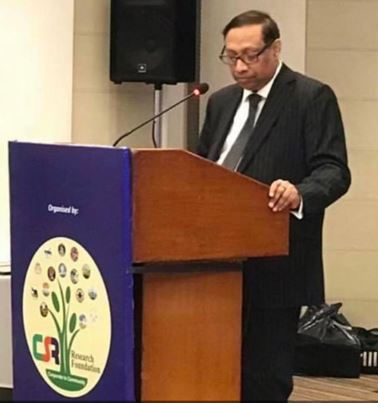
Sethurathnam Ravi, popularly known as S Ravi is the former chairman of Bombay Stock Exchange Limited (BSE). Currently he is the Founder and Managing Partner of Ravi Rajan & Co., an advisory and accountancy firm, headquartered in New Delhi, India. He is also an Associate Member of Association of Certified Fraud Examiners (CFE), USA, and also a registered Insolvency Resolution Professional.
Sethurathnam Ravi, popularly known as S Ravi is the former chairman of Bombay Stock Exchange Limited (BSE). Currently he is the Founder and Managing Partner of Ravi Rajan & Co., an advisory and accountancy firm, headquartered in New Delhi, India. When the Finance Minister of India Nirmala Sitharaman was all set to present the Union Budget on February 1, for the financial year 2022-23, rebate in taxation, simplifying investment and offering of further incentives to the Indian start-ups and MSMEs were the expectations from the same. After the presentation of the budget, Sethurathnam Ravi, the financial expert shares his views on the present taxation rates, the GST and how it affects the SMEs and the MSMEs. Sethurathnam Ravi (S Ravi) Founder and Managing Partner, Chartered Accountants’ firm Ravi Rajan & Co. said, “Expectation on rationalization of GST is there so that there is relief to small producers specifically within the food and Pharma sectors. I believe that there will be larger focus on few industries like semiconductors, lithium batteries, infrastructure for renewable energy and Electric Vehicles and special boost to Green Energy therefore we can expect major measures in this direction.”
After the presentation of the Union Budget 2022, Sethurathnam Ravi BSE expects that there will be some relief for the SME and MSME space with over 40 percent workforce engaged in the latter. In the last few years, we have seen, despite a strong covid outburst, a very strong recovery in terms of collection in the form of GST. According to Mr. Sethurathnam Ravi it has been a very progressive journey. It was full of challenges of acceptability. But now it has been accepted. The financial expert says that what is more important is how we address to the lower category of people, i.e., the MSME and the SME’s who have to bring in more awareness and to make the cost of compliance lesser.
Sethurathnam Ravi also suggests that a platform should be created where data sharing can happen, an open-source data platform between the banks, the SMEs, the MSMEs and the GST collection. With this possible, the bankers can review the collection, the credit record, turnover record, services record etc, in a harmonious way. Mr Ravi concluded by saying that this is very important from the long-term perspective.
#SethurathnamRavi#SethurathnamRaviBSE#SethurathnamRaviFmrBSEChairman#SRaviBSE#SRavi#SRaviBSEFmrChairman#SRaviBSEChairman
1 note
·
View note
Text
Sethurathnam Ravi, Former BSE Chairman - “CA’s Role Has Diversified Contributing To Nation Building”
Sethurathnam Ravi, popularly known as S Ravi is the former chairman of Bombay Stock Exchange Limited (BSE). On the 74th National CA Day, in an interview with BW Businessworld, Sethurathnam Ravi, currently Managing Partner, Ravi Rajan & Company and Chairman, TFCI reflects on how the role of chartered accountants has evolved over time both in practice and scope, becoming critical to a company’s, a sector’s and the economy’s growth story.
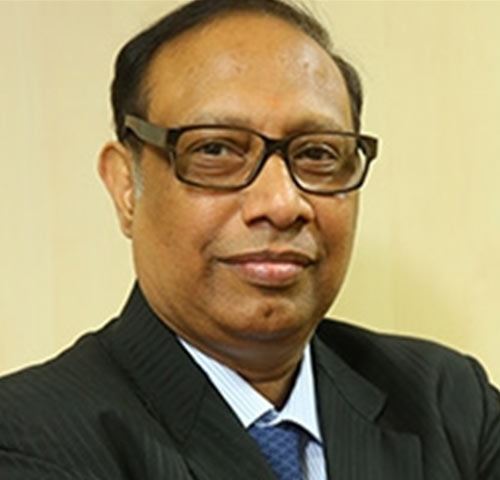
The former BSE chairman explains how he has seen a CA’s role broaden over the years. According to him, “If you look at the earlier years the profession was about statutory audit and internal audit but later it migrated to other fields such as forensic audit, due diligence, merchant banking and also things like insolvency in recent reforms. The profession widened significantly from practice and participation in bigger changes. Today, we see many CFOs, CHROs, CTOs who started as CAs. There are many CAs in the banking sector as well. If you were to compare it with two decades ago, the role has completely changed”. He says that it has become much more diversified, and the ecosystem has changed given the various reforms due to which both the practice and scope are impacted.
Sethurathnam Ravi also shared his observation on the ICAI partnering on nation-building. In his view, the ICAI has played a very vital role. “We got independence in1947 and the institute was formed in 1949. You can see how the system recognized the importance of CAs at the time and they have been part of the nation-building process because CAs audit companies and are part of the growth story but we are also the conscious keepers and watchdogs to a great extent”, he says. He also explains that the CAs help in small-scale industries in imparting knowledge and explaining things such as budgetary, statutory and economic changes where otherwise the domain knowledge is limited. CAs help across this spectrum, contributing toward nation-building.
Sethurathnam Ravi also highlights some points on what more can be done to develop the next generation of accountancy professionals. In his opinion, this is a very important area of focus. “Passing a CA exam itself is tough but the training process should be intensified so they are ready for the changes taking place in the environment. So, more practical orientation is equally important though the institute has taken various steps of imparting practical knowledge even after people qualify the intensity of real-life problems to have to be increased”.
The 21st World Congress of Accountants 2022 will be hosted in India for the first time. According to Sethurathnam Ravi, this is the opportunity to showcase the accounting profession, which is globally well recognised. “It is time to show what Indian accountants can do, their depth and knowledge. Also, it will be in exchange for experience with all the leading countries and their accounting practices”, he concluded.
#Sethurathnam Ravi#S Ravi#s ravi bse#Sethurathnam ravi BSE Former Chairman#Sethurathnam ravi Former BSE Chairman#sethurathnamravi#sravi#sravibse#sethurathnamravibseformerchairman#sethurathnamraviformerbsechairman
0 notes
Text
“There has been a very strong recovery in terms of collection in the form of GST in the past few years” - Former BSE chairman, Sethurathnam Ravi
Sethurathnam Ravi, popularly known as S Ravi is the former chairman of Bombay Stock Exchange Limited (BSE). Currently he is the Founder and Managing Partner of Ravi Rajan & Co., an advisory and accountancy firm, headquartered in New Delhi, India.
When the Finance Minister of India Nirmala Sitharaman was all set to present the Union Budget on February 1, for the financial year 2022-23, rebate in taxation, simplifying investment and offering of further incentives to the Indian start-ups and MSMEs were the expectations from the same. After the presentation of the budget, Sethurathnam Ravi, the financial expert shares his views on the present taxation rates, the GST and how it affects the SMEs and the MSMEs.
Sethurathnam Ravi (S Ravi) Founder and Managing Partner, Chartered Accountants’ firm Ravi Rajan & Co. said, "Expectation on rationalization of GST is there so that there is relief to small producers specifically within the food and Pharma sectors. I believe that there will be larger focus on few industries like semiconductors, lithium batteries, infrastructure for renewable energy and Electric Vehicles and special boost to Green Energy therefore we can expect major measures in this direction."
After the presentation of the Union Budget 2022, Sethurathnam Ravi expects that there will be some relief for the SME and MSME space with over 40 percent workforce engaged in the latter. In the last few years, we have seen, despite a strong covid outburst, a very strong recovery in terms of collection in the form of GST. According to Mr. Sethurathnam Ravi it has been a very progressive journey. It was full of challenges of acceptability. But now it has been accepted. The financial expert says that what is more important is how we address to the lower category of people, i.e., the MSME and the SME's who have to bring in more awareness and to make the cost of compliance lesser.
Sethurathnam Ravi also suggests that a platform should be created where data sharing can happen, an open-source data platform between the banks, the SMEs, the MSMEs and the GST collection. With this possible, the bankers can review the collection, the credit record, turnover record, services record etc, in a harmonious way. Mr Ravi concluded by saying that this is very important from the long-term perspective.

#sethurathnamravi#sravi#sravibse#sethurathnamravibseformerchairman#sethurathnamraviformerbsechairman
0 notes
Text
Sethurathnam Ravi realized that a company should have good advisors who can work hand in hand throughout the process
Sethurathnam Ravi (S Ravi) is the former Chairman of Bombay Stock Exchange Limited (BSE) (November 2017 to February 2019) and Founder and Managing Partner of Chartered Accountants’ firm Ravi Rajan & Co., an advisory and accountancy firm, headquartered in New Delhi, India. Mr. S Ravi is a Post Graduate in Commerce and holds a diploma in Information System Audit (DISA). He is an Associate Member of Association of Certified Fraud Examiners (CFE), USA and is also registered as an Insolvency Resolution Professional. S Ravi talks about the value of a mentor in startups.
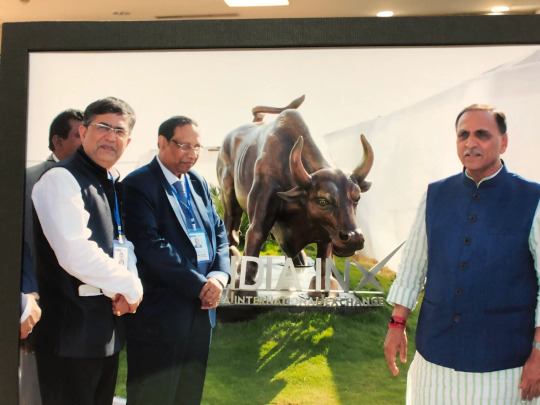
Sethurathnam Ravi is a Chartered Accountant based in India. He is also the Managing Partner and Promoter of Ravi Rajan & Company. In addition, S Ravi is also known as the former Chairman of BSE. S Ravi gives his views on the common mistakes of young entrepreneurs and how to overcome them.
S Ravi, former BSE chairman and independent director of the Tourism Finance Corporation of India, sheds light on the common shortcomings of startups. As a policymaker, S Ravi gives his views on the common mistakes of young entrepreneurs and how to overcome them.
Former BSE Chairman S Ravi said, “First of all, these entrepreneurs seem to have an excessive passion for their ideas. So the first and most important mistake is that they may have a very good idea, but they need to be flexible and very imaginative to change the business model to suit the needs. Because capital, growth, marketing and above all a story need to be told to people to make any idea a reality. So this is a package that will make the company successful. If a company’s personnel has a good idea and they fail, it is because they are too attentive to their idea and are not willing to change it according to market conditions. According to S Ravi, this is the first and foremost reason for failure.
The second is the capital, says Sethurathnam Ravi, former BSE Chairman. If the entrepreneur does not plan the next two steps to be taken if his startup is successful, there will be huge bleeding in the capital. Having been part of the BSE for a long time, S Ravi realized that a company should have good advisors who can work hand in hand throughout the process. Primarily the idea is to start the whole process. Next, you need to find the capital, then how do you go to the next level, raise the capital to the next level and then you have to market it because it is not available for capital. After all, burning money is too much. Then you have to get it to people and sell your product, and how you optimize everything is an integrated package. According to S Ravi, the second reason why everyone fails is capital.
The third reason is that the market conditions for one person are not red. Catch up is very fast on a startup. One idea comes up and another comes up with the same idea, which may be a better version of the idea. The better the more acceptable. Therefore, one must adapt and act quickly before the other company can make a move. That is why the fertility of the individual and the immediate response they receive to bring the product to market is so important. Unpacking is always very important and the story and people should believe their story, says Sri Ravi.
Mentorship is very valuable in this regard. The right form of advice from a positive set of people is always good. Counsellors and mentors can be people who can smooth out ideas. Because the ideas we say are dreams. So dreams need to be put in a box of success, and that box is very important. Now another thing, in Sethurathnam Ravi’s opinion, is that an advisor can also be a risk manager. The consultant can also be an entrepreneur. He can be an individual who can help an entrepreneur reach out to a policy. A mentor will have a lifetime of experience, would have had great success somewhere, and then you would accept his help and plan according to his chart. One can use his idea and in the end, everything stops with the entrepreneur. Many people have become consultants from the IT space and banking sectors. Entrepreneurs should take their advice for a better life.
#SethurathnamRavi#SethurathnamRaviBSE#SethurathnamRaviFmrBSEChairman#SRaviBSE#SRavi#SRaviBSEFmrChairman#SRaviBSEChairman
0 notes
Text
“Next few years are the best years for emerging companies to grow and leverage business environment in India” - Former BSE chairman, Sethurathnam Ravi
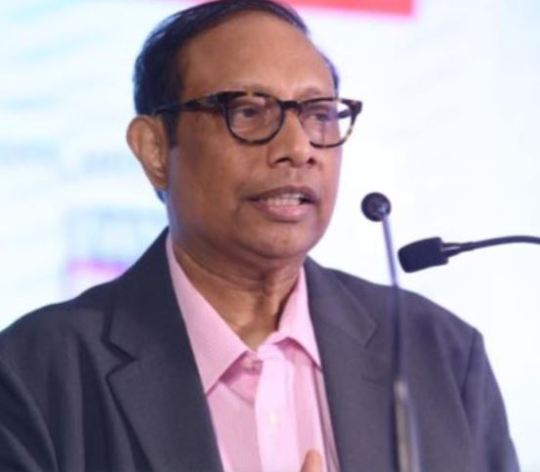
Sethurathnam Ravi, popularly known as S Ravi is the former chairman of Bombay Stock Exchange Limited (BSE).Currently he is the Founder and Managing Partner of Ravi Rajan & Co.,an advisory and accountancy firm, headquartered in New Delhi, India. He is also an Associate Member of Association of Certified Fraud Examiners (CFE), USA, and a registered Insolvency Resolution Professional.
Sethurathnam Ravi (S Ravi) is the former Chairman of Bombay Stock Exchange Limited (BSE) and Founder and Managing Partner of Chartered Accountants’ firm Ravi Rajan & Co., an advisory and accountancy firm, headquartered in New Delhi, India. Sethurathnam Ravi, a chartered accountant by profession, was the former chairman of BSE. He had been and is still continuing to be in board of many prestigious institutions. S Ravi talks on encouraging Emerging & Small Businesses and how they can leverage themselves rightly in the current environment. He shed his light in the current economic environment about his thoughts and how can a young entrepreneur establish his footsteps.
S Ravi explains how be it a start-up or an enterprise of the future, leverage themselves rightly in the current environment where everyone is predicting a super growth for India over the next 5 to 10 years. He talks about what are the regulatory issues they need to deal with, how can to navigate them, how to look after compliance because compliance is taking up their time money and effort and mind space. According to him, most importantly the two issues that one can throw light on placing capital is that you know it’s raining IPOs both in the primary and secondary markets.
Sethurathnam Ravi, the former BSE chairman feels that money is abundantly available and second, is the fact that becoming the technology play, you need to be a technology company whatever business you are doing. Mr. Ravi, with the background experience in advising entrepreneurs companies and even part of the policy making in the country would like to make a quick remark on background of why the next few years are the best years for emerging companies to grow and leverage business environment that exists in India.
The first and foremost factor that is there is the transformation that is from traditional business to the non-traditional business or to the new age business, says the Ex-chairman of BSE. So, this transformation has been happening for the last ten years but it has accelerated over the last five to seven years. And one has seen lot of growth of fintech companies, new banks, seen lot of service providers, there are also a lot of critics’ types of company companies, and the companies which have those successes behind like Paytm. But there should be new companies which are very robust and are coming up in all fields, let it be financial services, manufacturing, robotics or artificially intelligence. So, what worries everybody in this space of the emerging companies and start-up is compliance. For them, the cost of compliance can come down drastically if artificial intelligence and uniform platforms are created for them.
So that is why, Sethurathnam Ravi recommends both the technology with the small emerging companies whether it be any manufacturing, aerospace etc. They can take anything so it has red deed and the cost of compliance will be automated and that is what I think is going to be the next level that the country going to witness. The growth is going to be there because of this and technology has played a very predominant part in it. Manufacturing company with core strength that has to coincide with technology companies to have a robust future says the former BSE chairman.
#SethurathnamRavi#SethurathnamRaviBSE#SethurathnamRaviFmrBSEChairman#SRaviBSE#SRavi#SRaviBSEFmrChairman#SRaviBSEChairman
0 notes
Text
Sethurathnam Ravi says Government needs to Focus on bringing down the Impact of Covid-19 by Serving with Quick Intent of Pending Cases
Former BSE Chairman, Sethurathnam Ravi gives his views on how major sectors are impacted by the economy during the pandemic. He talks on some of the critically affected sectors in India during the pandemic wave.
According to Sethurathnam Ravi, the first major sector that was affected is the real estate and construction sector. It started facing disruption during the pandemic situation as a huge number of migrant workers left for their villages. This led to a lack of required laborers for both construction and housing projects in the states and urban areas. As a result, a delay in the completion of projects was observed.
As per S. Ravi, the labor unions have confirmed that more than 2 lakh migrant laborers left Delhi NCR during the lockdown and returned to their hometowns every day. This means the construction sites were working with even less than 50% workers along with other disturbing situations like shortage of raw material, and much more. Even currently the sector remains troubled resulting in several pending projects.
Aviation and Tourism is the next sector affected by covid as mentioned by the former BSE Chairman. Tourism and Aviation contribute around 9.2% and 2.4% respectively to the GDP of India. Both the industries were the first to get affected significantly by the lockdown due to Covid-19. As per the reports, the pandemic situation has obstructed these industries more than the situation that arrived during the Financial Crisis in 2008 and 9/11. The industries have faced issues with cash flow from the very beginning of the pandemic.
Also, S. Ravi points out that due to the situation, nearly 38 million people lost their jobs which counts for almost 70% of the workforce including both Blue and White-collar jobs. As estimated by IATO, the industries would have suffered a loss of around 85 million Rupees or even more due to the traveling restrictions. Counting on the plus points, various innovative changes are implemented for contactless boarding traveling technology.
As enunciated by Sethurathnam Ravi BSE, the next on the list is the automobile industry. The automobile industry is again under pressure as due to the pandemic the sales have drastically fallen. India imports around 27% of the automobile parts from China, and due to Covid-19, the delay in the import has resulted in deferrals in the production of vehicles and their delivery. The increase in the estimated loss has forced various manufacturers to temporarily close their companies.

As per the suggestion of the Former BSE Chairman Sethurathnam Ravi, waiving the interest for a fixed period might be helpful to the manufacturers to a great extent. Again, subsidizing the market for manufacturing OEM or electric vehicles and components would help in managing the loss as well as the demand of the public as this would also reduce the consumption of petrol.
Apart from all these, other sectors that are affected tragically include the shipping industry, food and agriculture, electronics, hospitality industry, banking, financial industry, and many more. Hence, the economic crisis prevailing currently needs the implementation of particular effective policies in an instant manner. The government needs to primarily focus on reducing the impact of Covid-19 by serving with quick resolution of pending cases and screening awareness. This would help in restricting the chain of the outbreak and the sectors would be in action again which would vastly boost the economic activities.
#SethurathnamRavi#SethurathnamRaviBSE#SethurathnamRaviFormerChairman#SethurathnamRaviBSEChairman#SRaviBSE
0 notes
Text
Investment Applications Are Frequently Used To Swindle Small Investors, Affirms Former BSE Chairman, Sethurathnam Ravi
Sethurathnam Ravi (S Ravi) is the former BSE Chairman and founder of Ravi Rajan & Co. In his past career he held the position of Union Finance & Revenue Secretary at India Ministry of Finance. Presently, Mr. Ravi holds the position of Non-Executive Chairman of Tourism Finance Corp. of India Ltd. and Director & Managing Partner at RRCA & Associates. Sethurathnam Ravi shares his views on how to protect yourself from fraudulent app scams.
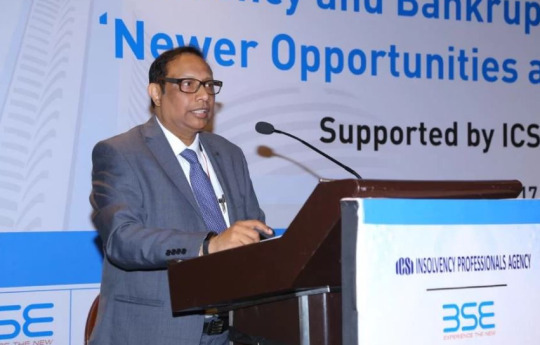
According to Mr. S Ravi BSE, fraud applications have been a menace to many users who have lost money unknowingly. They are fake applications that are mirrors of legitimate applications available on the market. Fraudsters and scammers create applications to induce people to use them. These applications could be similar to popular applications to mislead users who download them on their phones or laptops. It can be a jumble of words that are more or less similar to frequently used applications. However, these applications have one thing in common; they are disguised as genuine applications and are well constructed.
“It is public knowledge that many of these fraudulent apps have also been promoted and advertised on Google networks, Facebook, Instagram, TikTok, etc. As per published information, more than 5 lakh Indians were cheated by using Chinese applications amounting to approximately ₹150 crores. Many investment applications were used to swindle small investors”, Mr. Ravi says.
There are too many cash applications that have witnessed a high percentage of fraud. Cash applications have been chosen carefully as this directly causes financial damage. Such applications are Ultima Keyboard space 3D pro, GT Sports Racing Online, Fitness Ultimate 2o21, Wi-Fi pass code unlock, video mixer editor pro, RT news, UC Browser, Clean It Reface Ultra, live photo animator, ultra-camera HD, water drinker reminder, magic mix, etcetera. Researchers have identified more than 151 applications that, once installed on phones, can carry out fraudulent activities.
Sethurathnam Ravi BSE Chairman also acknowledges that the government of India has taken measures to eradicate cyber-crime. Local police have consistently arrested fraudsters and also investigated promoters of such applications. The government of India banned Chinese applications to protect investors. A comprehensive list of fake applications was circulated to spread awareness, Mr. Ravi concludes.
youtube
#SethurathnamRavi#SethurathnamRaviBSE#SRaviBSE#SRavi#SRaviBSEFmrChairman#SRaviBSEChairman#SethurathnamRaviFmrBSEChairman#Youtube
0 notes